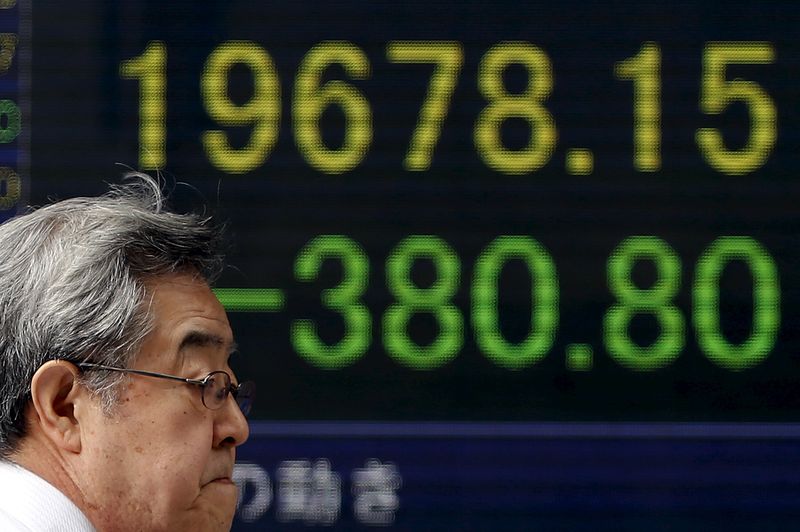By Gina Lee
Investing.com – Asia Pacific stocks were down, falling to a one-week low, on Monday morning, as continuing concerns about the impact of continuously rising COVID-19 cases, alongside inflationary pressures, on the global economic recovery dampened investor sentiment.
Japan’s Nikkei 225 fell 1.69% by 10:13 PM ET (2:13 AM GMT) and South Korea’s KOSPI fell 1.20%.
In Australia, the ASX 200 fell 0.98%, with the Reserve Bank of Australia releasing the minutes from its latest policy meeting on Tuesday.
Hong Kong’s Hang Seng Index slid 2.18%.
China’s Shanghai Composite was down 0.25% and the Shenzhen Component was down 0.23%.
U.S. shares also closed their previous session on a downward trend, with the S&P 500 falling for the first week in four. Meanwhile, a rally in U.S. Treasuries continued, with the benchmark 10-year yield further below the 1.3% mark.
The debate over whether inflationary pressure will cause central banks to start asset tapering, in turn slowing down the economic recovery from COVID-19, saw the recent rally in global shares hit pause.
Investors also digested the decline in Treasury yields. Some investors saw the trend as a sign that the economic recovery is slowing down as countries reimpose restrictive measures to curb COVID-19 outbreaks involving the Delta variant, while others suggested that it is the bond rally that is slowing down.
“The COVID-19 backdrop is just one of several factors that may be adversely impacting the reflation trade,” RBC Capital Markets head of U.S. equity strategy Lori Calvasina said in a note.
Others include the prospect of the U.S. Federal Reserve tapering stimulus and hiking sooner than expected, the note added.
Fed Chairman Jerome Powell insisted in his testimony before Congress, delivered during the previous week, that increasing inflation is likely a temporary phenomenon. However, markets are yet to be fully convinced by his reassurance that supportive monetary policy will remain in place for some time yet.
Elsewhere on the central bank front, both the European Central Bank and Bank Indonesia will hand down their policy decisions on Thursday.
All eyes are now on the U.K., where the remaining COVID-19 measures are due to be lifted as of Jul. 19, with increasing inflation also continuing to be a focal point.
Bank of America (NYSE:BAC) analysts downgraded their forecasts for U.S. economic growth in 2020 to 6.5% from the previous 7% but maintained their 5.5% forecast for 2022.
"As for inflation, the bad news is it’s likely to remain elevated near term... the good news is... we are likely near the peak, at least for the next few months, as base effects are less favorable and shortage pressures rotate away from goods towards services," they said in a note.
